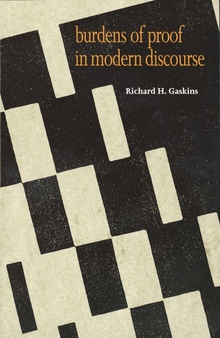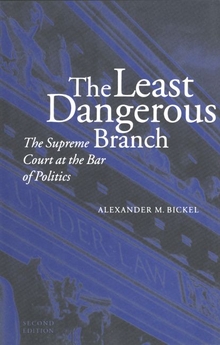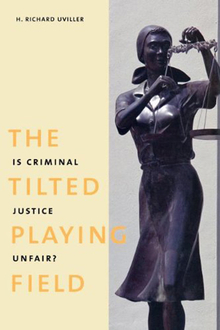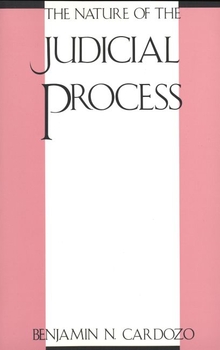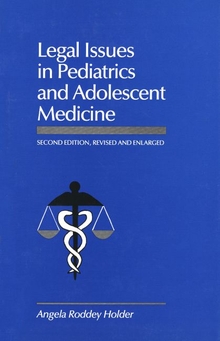Burdens of Proof in Modern Discourse
WARNING
You are viewing an older version of the Yalebooks website. Please visit out new website with more updated information and a better user experience: https://www.yalebooks.com
Richard H. Gaskins
This legal, philosophical, and rhetorical study by Richard H. Gaskins provides the first systematic treatment of arguments-from-ignorance across a wide range of modern discourse—from constitutional law, scientific inquiry, and moral philosophy to organizational behavior, computer operation, and personal interaction. Gaskins reviews the historic shifts in constitutional proof burdens that have shaped public debate on fundamental rights and, by analogy, on the fundamental status of intellectual and cultural authority. He shows how similar shifts have dominated polemical battles between scientific and ethical modes of authority, affecting both academic and popular discussion. Finally, he discovers the philosophical roots of default reasoning strategies in the arguments of Kant and nineteenth-century Kantian schools.
Concluding that shifting proof burdens are inescapable in a world of scientific and moral uncertainty, Gaskins emphasizes the common strategic ground shared by dogmatic and skeptical reasoning. Using Hegelian strategies, he describes a more pluralistic temper that can move critical thinking beyond polemics and strengthen our capacities for common discourse.
"A gracefully written work of astonishing breadth, depth, erudition, and scholarship. Its innovative and timely argument will be of great interest to academic lawyers, philosophers, political scientists, and many others."—Ian Shapiro, Yale University
"Gaskins has given us a thought-provoking exploration of the rhetorics of justification common in contemporary argument. His examination connects developments in law and legal theory to developments in a wide range of other disciplines. It may lead scholars in all the fields he discusses to rethink the way we argue."—Mark Tushnet, Georgetown University Law Center
"The concept of burden of proof, Gaskins contends, is a powerful element of 20th-century styles of argument, both legal and nonlegal. . . . Even the reader who lacks the philosophical training to get the most out of Gaskins' technical arguments will find that much of his analysis opens windows on some interesting problems of life and of the law."—Jonathan Groner, ABA Journal
"Remarkably perceptive, a shrewd interpretation of modern America's rhetorical bent."—Carlin Romano, Philadelphia Inquirer
"Gaskins not only succeeds in showing the pervasiveness of the argument-from-ignorance in modern discourse . . . but also clarifies a number of basic conceptual oppositions . . . and sheds a great deal of light on the sudden shifts obtaining in academic inquiry and public policy debates. . . . Burdens of Proof in Modern Discourse constitutes a fine achievement and will be of interest to any student of reasoning strategies."—Gerald Prince, Philosophy and Literature
"Gaskins provides a thorough and readable examination of the often overlooked importance of burdens of proof, both in our legal system and in the broader arena of modern discourse."—Ryan Chadwick, Houston Lawyer
Publication Date: February 22, 1995

